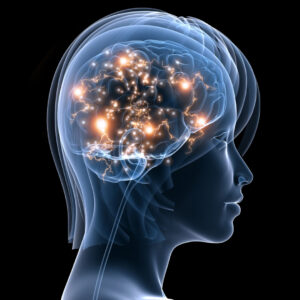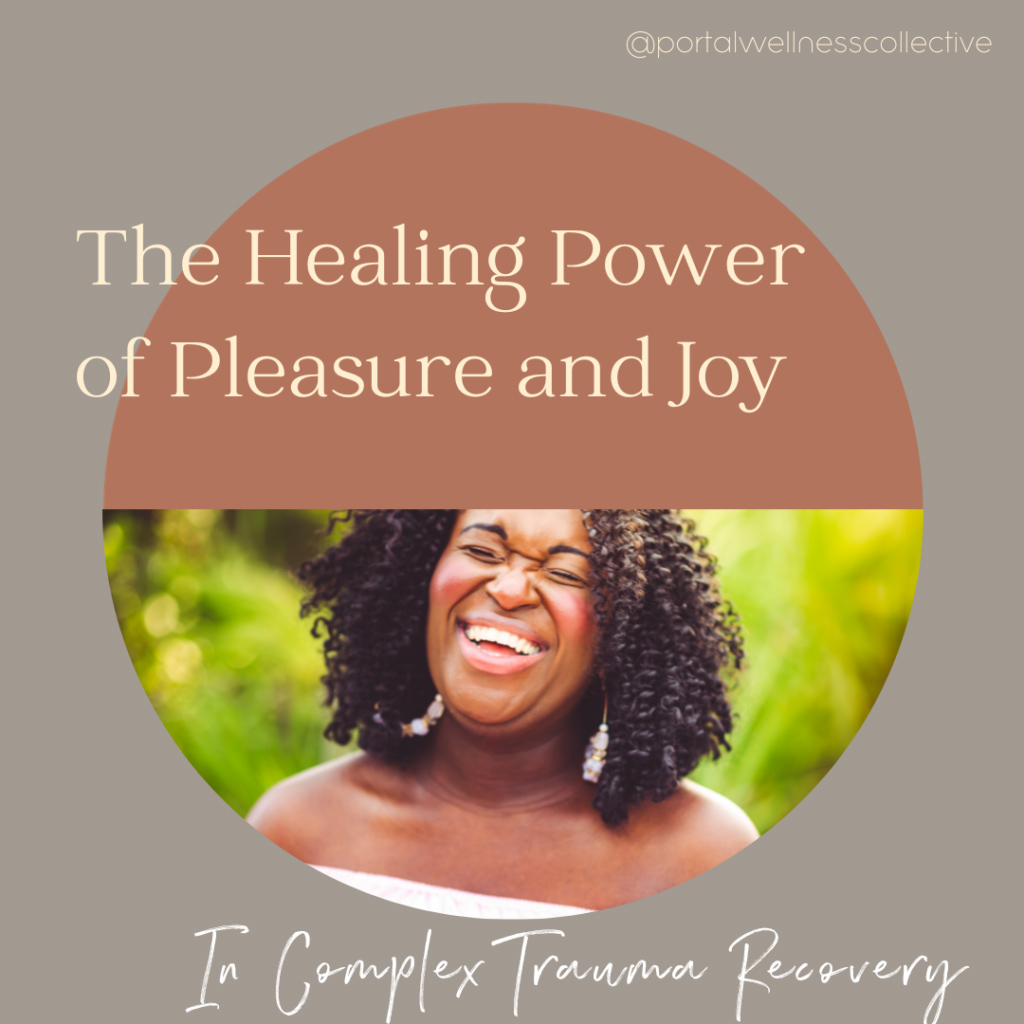Healing from complex trauma can be an arduous journey, filled with emotional and psychological challenges. While traditional therapeutic approaches focus on addressing the pain and suffering associated with trauma, there is an emerging understanding of the importance of pleasure and joy in the healing process. The healing power of pleasure and joy in complex trauma is essential. In this article, we will explore why pleasure and joy are essential to healing from complex trauma, backed by scientific evidence on how these positive experiences help the body and nervous system relax and signal safety.

The Science of Pleasure and Healing
- The Brain’s Reward System for Joy and Pleasure: To understand how pleasure and joy contribute to healing, we must first look at the brain. Pleasurable experiences trigger the release of neurotransmitters like dopamine, which are associated with feelings of reward and satisfaction. This natural reward system plays a crucial role in motivating us to engage in activities that promote well-being and healing. Learn more about dopamine and its role in the brain here.
- Stress and the Nervous System Impact: Complex trauma often leads to chronic stress, which can have a detrimental impact on the body and mind. Pleasurable experiences counteract the effects of stress by activating the parasympathetic nervous system, responsible for the “rest and digest” response. This activation helps the body relax and recover from the heightened state of arousal associated with trauma. Discover more about the parasympathetic nervous system here.
Pleasure as a Safety Signal
- Pleasure helps in Reestablishing Safety: In the aftermath of trauma, the body and mind are frequently stuck in a state of hyper-vigilance, constantly on guard for potential threats. Pleasurable experiences can serve as powerful signals to the body that it is safe. When we experience joy, our nervous system interprets it as evidence that we are not in immediate danger, allowing it to relax and focus on healing.
- Joy helps in Rebuilding Trust: Complex trauma often erodes trust in oneself and others. Engaging in pleasurable activities and experiencing joy can help rebuild trust in one’s ability to find moments of happiness and safety, both internally and externally.
This is just one aspect we look at when healing from childhood trauma. If you are on this journey check out our other blogs, like is there a best type of trauma therapy?
Incorporating Pleasure into Healing
- Mindful Pleasure Practices: Mindfulness techniques can be instrumental in integrating pleasure into the healing process. Mindful activities such as meditation, yoga, or simply savoring the sensory experience of a favorite meal can help individuals reconnect with their capacity for pleasure. Pleasure is sensory. So reconnecting to pleasure can be as simple as lying in the sun, breathing, massage, baths and sexual activities. Learn more about mindfulness practices for trauma recovery here.
- Professional Guidance: Trauma therapy approaches like Somatic Experiencing and EMDR (Eye Movement Desensitization and Reprocessing) often incorporate pleasure and joy as essential components of the healing journey. Seeking support from trained therapists who understand the importance of pleasure can be highly beneficial.
If you are wanting guidance in healing from trauma, check out our trauma specialists! We would be honored to guide you through the process of healing.

Conclusion
Healing from complex trauma is a multifaceted process, and incorporating pleasure and joy into this journey is a crucial aspect often overlooked. By understanding the science behind how pleasure benefits the body and nervous system, as well as its role as a signal of safety, individuals can begin to embrace these positive experiences as a vital part of their healing process. Remember, finding moments of pleasure and joy is not indulgence; it is an act of self-compassion and a step toward reclaiming a sense of well-being in the aftermath of trauma.


